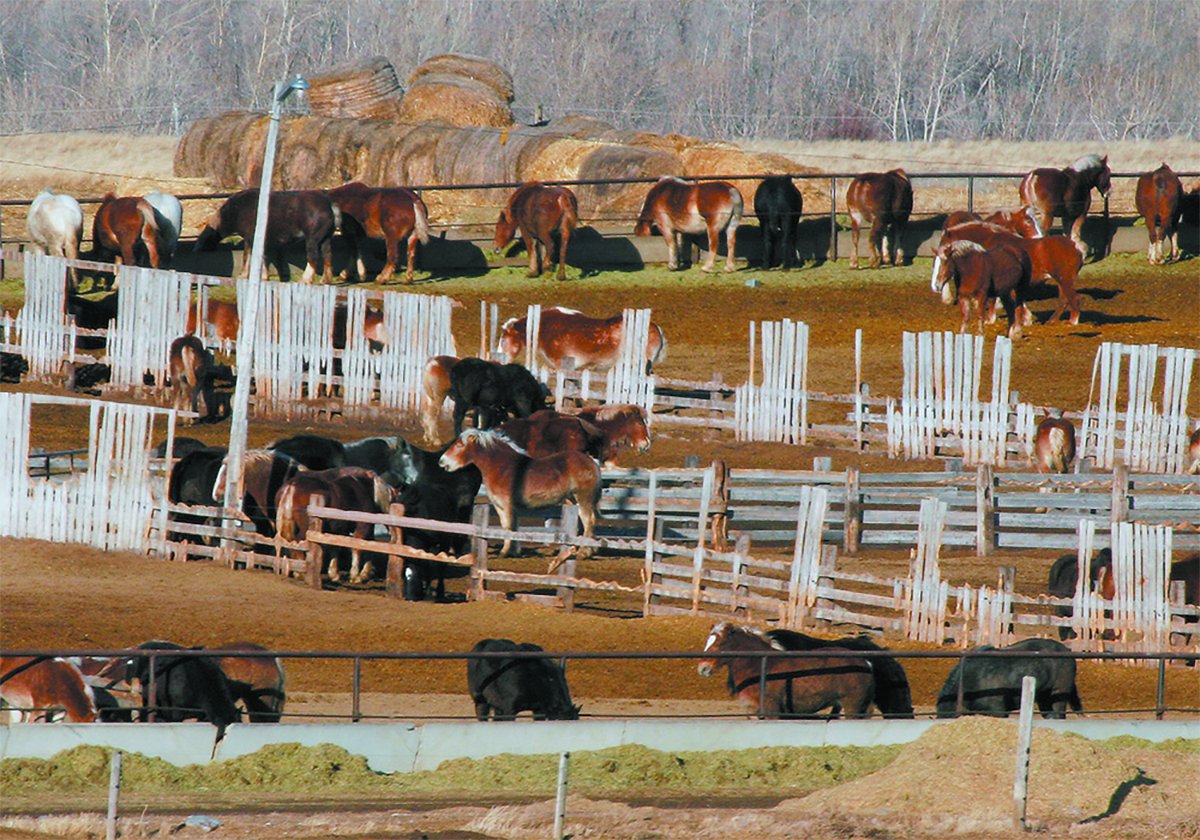It’s nicknamed cheesy gland for the obvious reason that the true name of this chronic sheep disease is harder to pronounce: caseous lymphadenitis.
Zoetis has recently introduced a treatment for CLA in Canada. Glanvac 6 vaccine handles cheesy gland and five of the most common clostridial diseases affecting sheep: pulpy kidney (enterotoxaemia); tetanus; black disease (infectious necrotic hepatitis); malignant oedema; blackleg; and swelled head disease.
Dr. Melanie Wowk, a large animal technical services veterinarian with Zoetis, explained use of the vaccine in a May 8 webinar organized by the company. The vaccine is administered sub-cutaneously on the side of the neck, has a meat withdrawal period of 21 days and comes in 100-millilitre bottles.
Read Also

Canada’s slaughter horse industry lacks transparency
The lack of clear reporting and public access to data keeps the industry largely hidden, leaving questions about humane treatment and traceability unanswered.
The product has proven effective over years of use in Australia, Wowk said.
CLA is caused by bacteria that cause abscesses in the lymph nodes of sheep. When those abscesses burst or are otherwise opened, they emit cheesy-looking green pus. The abscesses can develop internally so the infected animal initially shows no outward signs. The illness-causing bacteria are .transmitted when abscesses occur in the lungs and then travel through coughing or through nicks in the skin.
“It is the leading cause of carcasses to be condemned in Canada,” Wowk said about CLA.
It can cause weight loss, mastitis, respiratory disease, chronic cough and neurological defects.
Vaccination protection against CLA and the other five diseases requires two doses in previously untreated animals followed by annual boosters. Previously untreated pregnant ewes can be treated eight weeks before lambing and will pass immunity to their lambs for six- to eight-week protection, Wowk said.
Lambs can be treated at six weeks of age followed in four weeks by a booster.

















